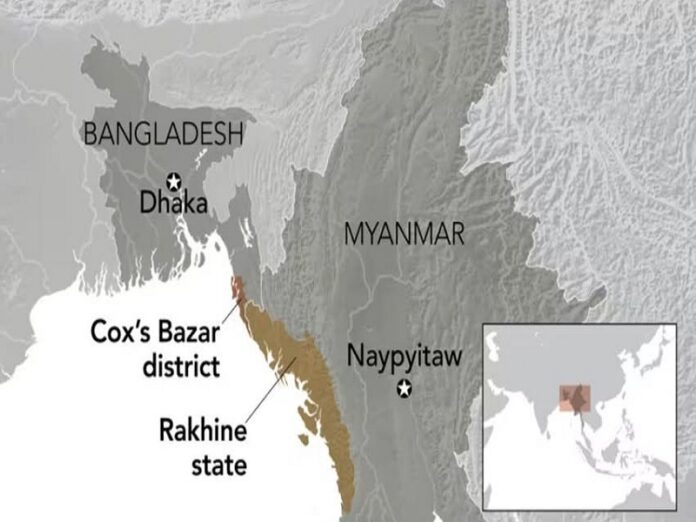India Today recently published two detailed reports here and here about the significance of Bangladeshi Army Chief General Waker-uz-Zaman criticized the decision of Chief Advisor Muhammad Yunus’ government to participate in the creation of a humanitarian corridor to Myanmar’s Rakhine State. The gist is that Waker is allegedly concerned that this could directly embroil Bangladesh in that neighboring conflict that’s increasingly taken on the contours of a Sino-US proxy war as explained here late last year.
Of relevance, the radical Jamaat-e-Islami movement (whose prior banning was lifted after last summer’s US-backed regime change) recently proposed an independent state for their Rohingya co-ethnics there, whose future is more tenuous than ever after the Arakan Army (AA) captured most of the region. The AA is comprised of militant Buddhist nationalists who’ve been at odds with the Muslim Rohingyas. They’re also part of the “Three Brotherhood Alliance” (3BA) that’s made major gains since October 2023.
Although Bangladesh politically supports the Rohingya, involving itself in Myanmar’s hybrid civil-international war on the US’ side by allowing arms to be secretly sent to the 3BA under the cover of humanitarian aid would represent an unprecedented escalation, one that could harm ties with China. The China-Myanmar Economic Corridor (CMEC), which includes two pipelines and a planned railway alongside a highway, terminates at Kyaukphyu Port in central Rakhine State.
Any role that Bangladesh plays in obstructing or ultimately cutting off China’s access to that strategic facility, even if it’s only indirect by facilitating the flow of American arms to the 3BA, might lead to a crisis in bilateral ties that in turn complicates for Bangladesh’s already clumsy post-coup Sino-Indo balancing act. Moreover, it would be a betrayal of national interests as the armed forces understand them to be for their country to play a role in arming the AA, which might one day use these arms against the Rohingya.
At the same time, as India Today assessed in one of their earlier cited reports on this issue, Yunus might be plotting to replace Waker in order to relieve military pressure upon him to hold elections so that he and his clique can remain in power for longer in spite of the growing protests against his rule. Waker had also recently told him that elections must be held by December, yet Yunus is thus far reluctant to organize them, which worsens mutual suspicions between the military and interim government.
Helping the US carve out a proxy state from Myanmar might therefore be the price that Yunus has to pay for continued American support even though it would betray Bangladesh’s national interests. Additionally, the proposed humanitarian corridor to Rakhine State is an emotive issue for Bangladeshis since the Rohingyas are their co-ethnics, so it might divide the protest movement. Waker’s opposition to it could also turn some of the populace against him and generate more support for Yunus replacing him.
As can be seen, a power struggle is taking place in Bangladesh right now over the extent to which the country’s post-coup government should collude with the US on regional geostrategic matters, with the military opting to keep it at arm’s length while the interim government wants to become its top ally. Nothing can be ruled out, from more weaponized protests (whether against Yunus or Waker) to a military coup, with the outcome determining Bangladesh’s role in South Asia in the New Cold War.







